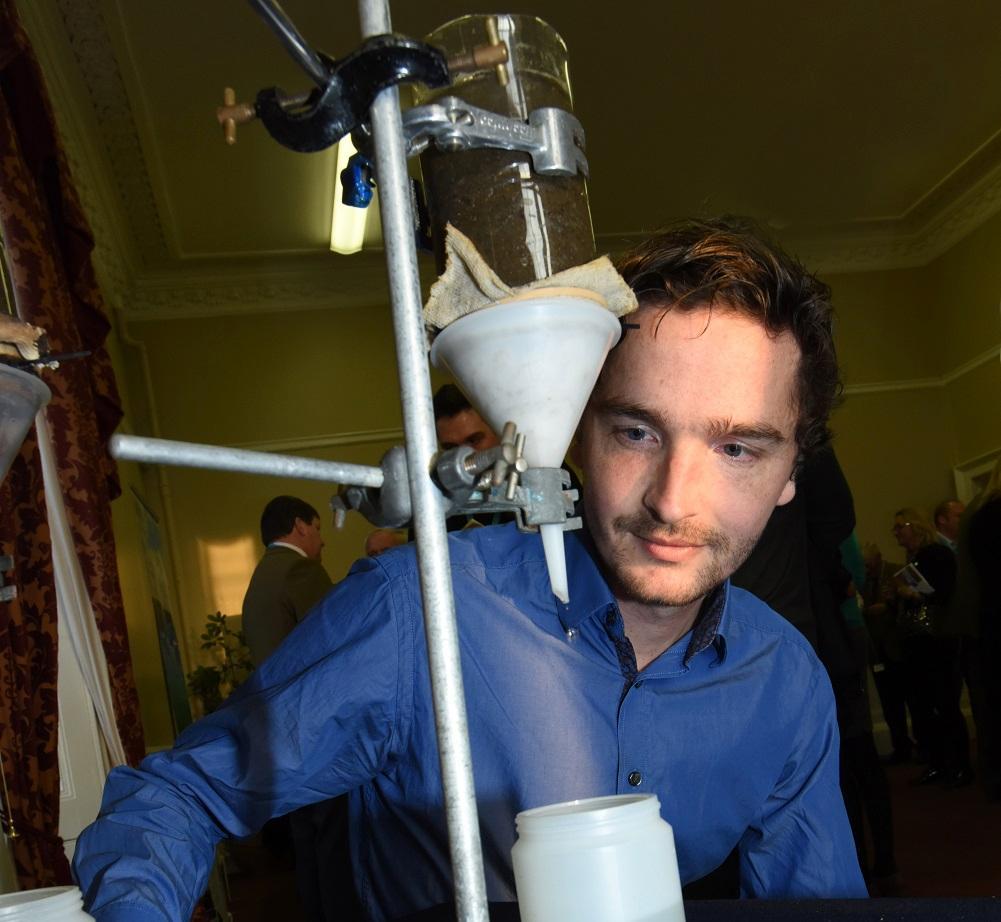Increasing our Agricultural Resilience to Coastal Flooding
In December 2013, the storm surges that breached some of the defences along England’s east coast thankfully caused much less damage to life and property than the earlier floods of 1953, but the hidden impact on the quality of prime agricultural soil is still being felt by some farmers today. At the University of Lincoln, experts in agriculture, soil science and rural economics are spearheading efforts to understand the risks our farmers face and ensure that they are protected, prepared, and equipped for if, or when, similar events occur in the future. Their aim is to increase agricultural resilience to destructive coastal floods.
Saltwater flooding, often caused by rising sea levels and violent storm surges, can bring in salts and sediments to prime agricultural land and it consequently causes more long-term damage than freshwater flooding. As sodium in saltwater disrupts plant growth and is detrimental to soil structure, scientists from Lincoln’s School of Geography and the Lincoln Institute for Agri-food Technology are exploring how different post-flood management practices can reduce sodium levels over time. Ultimately, they hope to understand how farmland damaged by saltwater can best be brought back into use.
Delivered in collaboration with farmers operating in and around the Lincolnshire Wash, the study considers the potential economic impact of coastal flooding, including the long-term effects of increased levels of soil salinity on agricultural land. Involving fields in Lincolnshire which were flooded in the 2013 surge, it measures various recovery management and salt-resistant cropping systems to understand how we can be more resilient to future salt water ingress in coastal areas – particularly along England’s east coast, where vegetable and wheat production are most at risk.
The results of this research will be freely available and will be used to engage policy stakeholders to provide an independent assessment of flood defence strategies and potential mitigation strategies in the Wash region of the county.
Dr Gary BosworthWe hope that by setting out the economic costs of saltwater contamination of farmland we can make the case for a greater policy focus on mitigation and adaptation strategies. We are also optimistic that we can offer practical solutions for farmers, by improving scientific and industry understanding of the most effective mitigation and adaptation measures.
Another new research project at Lincoln will offer fresh insights into ‘saline agriculture’ - the process of adapting farming techniques to salted soils, and a potential solution to some of the challenges facing coastal farms at risk of flooding. For example, saline agriculture might involve making existing fresh water crops more salt-tolerant through a process of breeding and selection.
The new project – called SalFar – is a major European collaboration which will investigate opportunities for innovative agriculture that can adapt to climate change and sea level rise. This Interreg North Sea Region project, funded by the European Regional Development Fund (ERDF), involves a number of partners, including those in countries with vulnerable coastlines, to develop more salt-tolerant crops, create local food brands based around saline agricultural production, and carry out economic assessments for growth in saline agriculture both locally and globally.
Dr Iain GouldWe already know that resource consumption and carbon emissions are major drivers of climate change and in order to reduce these, we have to look for alternative methods of production in agriculture. Our new work as part of the SalFar project aims to promote resource efficiency by re-using degraded farmland and reducing fresh water consumption. ‘Thinking green’ in this way means a real change of perspective in farming and food production, a change of behaviour of the consumers of food, and, for authorities, re-thinking water management and changing policies on environment and agriculture in coastal areas.
Meet the Experts
Dr Gary Bosworth,
School of Geography

Dr Gary Bosworth is Deputy Head of the School of Geography and his research centres on rural development and the creation of sustainable and “liveable” rural communities.
Dr Iain Gould,
Lincoln Institute for Agri-food Technology

Dr Iain Gould is soil scientist who specialises in how land management and vegetation composition can impact on soil function.
